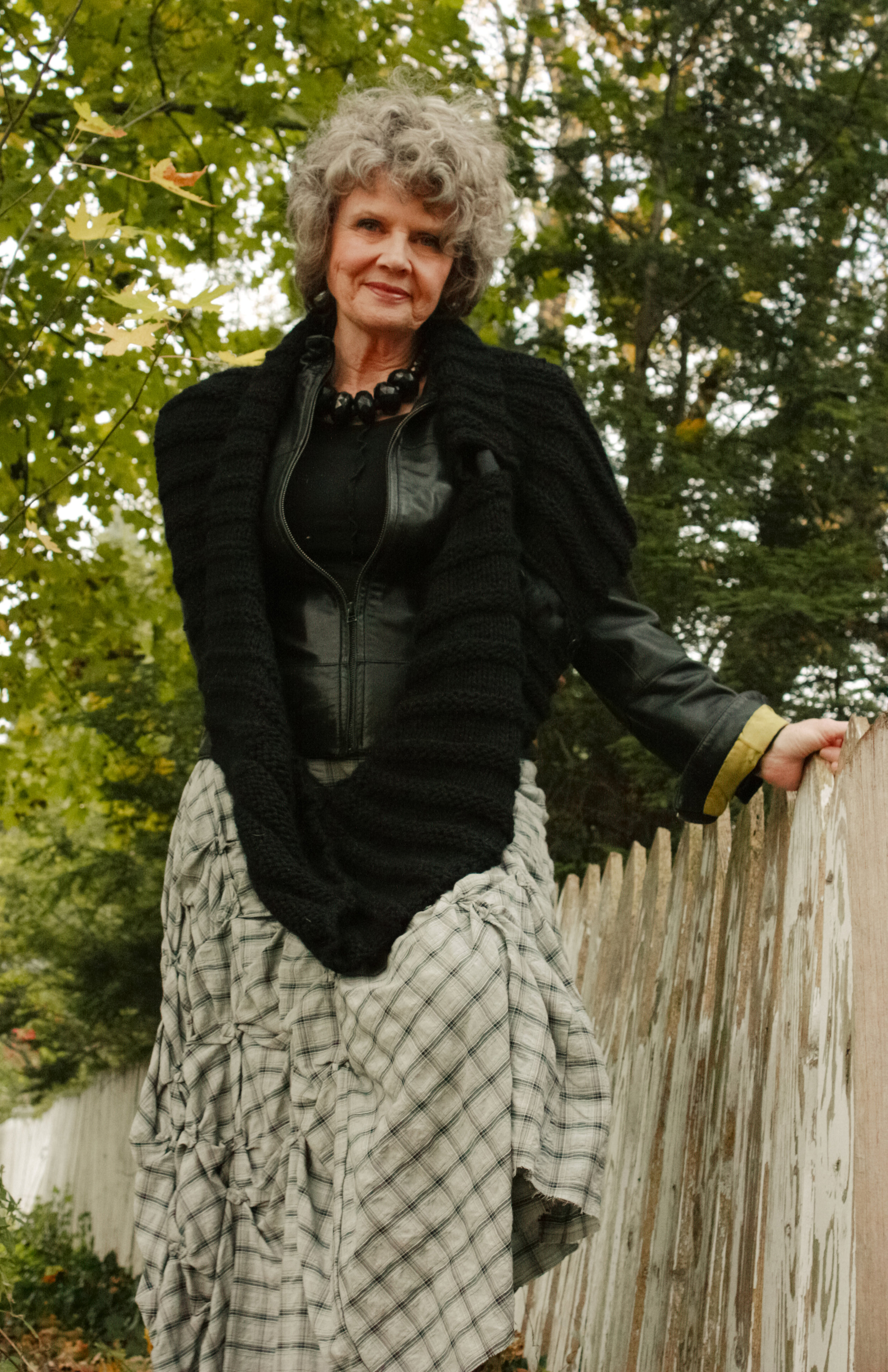Undressed: Professor Beverly Allen
How would you describe your style?
(laughs) I was going to ask you to do that.
It seems very European to me.
That's what people say fairly often.The way I dress is pretty reflective of the fact that I lived in Italy for 13 years when the dollar was strong. Come to think of it, most of my stuff was made in Italy, France, or Denmark.The dress I wore for my son's wedding comes from a young designer in East Berlin.
Sounds unique.
Oh, it's fabulous. It's extremely simple. It's grey like a cloud, a friendly cloud. What's remarkable is that the idea of the dress is weightlessness. It seems so ephemeral, and yet it's so strong structurally.
Have you ever worked in the fashion industry?
When I was in graduate school, I worked in a friend's dress shop on Telegraph Avenue in Berkeley called Yarmo. I worked with a great group of young women. One of them, Jacqueline West, went on to be a costume designer for the film industry. She's been nominated twice for an Oscar, and another's a designer for CP Shades. Then when I had to come back from Italy, where I was studying, or actually, living with my boyfriend while playing in the orchestra in Bari, I had no idea what I was going to do. I ended up getting hired at Saks Fifth Avenue as a floor model. It was really a sociological study—who was shopping there, how they reacted to me, what the others models were like.
You've done a lot of work concerning genocidal rape, particularly with refugees from Bosnia.
A student, who was of Bosnian and Croatian descent, originally brought what was happening to my attention. She brought me testimonies of survivors from these places. Something happened to me, and I knew I had to do everything I could to stop it. Back in the war in Bosnia in 1992, Serbian nationalist forces developed a policy of attacking civilians. They had established something like 40 places in northern Bosnia—we call them rape camps. The idea was to produce little Serb soldiers. It was a crazy policy. Nobody was writing about that here. I got a grant to translate Italian poetry in Venice where a friend of mine introduced me to the Director of the Italian Cultural Institute in Zagreb. He invited me to Zagreb, and that's how that started. I spent a good decade working on that issue.
What was your experience like?
Let me say right off the bat that what I'm about to say is not trivial. Before I left for Zagreb, so that I could meet the survivors of these rape camps, one of the first questions I asked myself was: what shall I wear? That may sound outrageously, offensively superficial, but it isn't. The reason is I had been to Zagreb before. I knew its formality and its beauty. In the end, the success of my work really depended on how I got along with the professional women who had come out of Sarajevo. It's very important to show respect and understand where you are.

